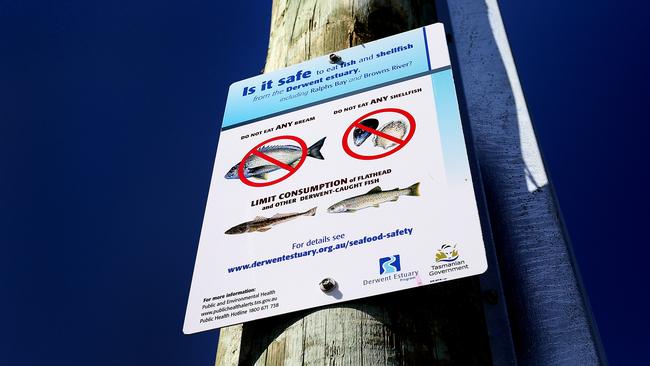Wet weather blamed for parasites in Sydney’s drinking water
TWO water bugs that forced Sydneysiders to boil their tap water almost two decades ago has again been detected in catchment and treated water supplies.

NSW
Don't miss out on the headlines from NSW. Followed categories will be added to My News.
TWO parasites that forced Sydneysiders to boil their tap water almost two decades ago has again been detected in catchment and treated water supplies.
The Sunday Telegraph can reveal NSW Health was informed on each occasion, with follow-up tests giving supplies the all-clear.
The test results are contained in the latest Sydney Water Quarterly Drinking Water Quality Report, which examines the findings of samples taken of both treated and raw water.
The report blamed a series of “wet weather events” starting in 2012 for ongoing challenges in treating water, with heavy downpours increasing levels of turbidity, natural colour, organic matter and metals in raw water storage areas.
Found in ‘raw’ water
During the year to March 2015, both cryptosporidium and giarda cysts had been “occasionally” found in raw water, the report said.
The cysts had mainly been found in raw water sources managed by Water NSW which supply the Prospect Water Filtration Plant in Sydney’s west and the Richmond Water Filtration Plan in the northwest.
The report said a single cryptosporidium occyst had also been detected on two separate occasions on October 1 and again on October 2 last year.
“A single cryptosporidium occyst was detected on two separate occasions”
The occyst was found in a 100 litre sample taken from the North Richmond plant, with Sydney Water immediately notifying NSW Heath, it said.
The report said Sydney Water investigated treatment performance while also undertaking re-sampling of the plant water.
With no further cryptosporidium occysts or giardia cysts were detected during the follow-up tests, NSW Health had advised the detections were “unlikely” to have affected public health, the report said.
“A single cryptosporidium occyst was detected on two separate occasions,” it said.
“On each occasion, Sydney Water notified NSW Health immediately, investigated treatment performance and undertook re-sampling.
Ramped up treatment
“Based on an assessment of all relevant risk factors associated with these events, NSW Health advised that these events were unlikely to have affected public health.”
From July to September 1998, Sydneysiders were banned from drinking tap water without boiling it first after high concentrations of Cryptosporidium and Giardia were detected in both Sydney Water supply and distribution systems.
Three boil-water advisories were issued to more than three-million people, with an inquiry resulting in Sydney Water dramatically ramping up its water quality testing regimes.
A series of investigations into the cause of the contamination blamed a series of rainfall events for flood-waterborne Cryptosporidium and Giardia short-circuited the storage reservoir and entering the treatment plant.
Both parasites can be deadly to young children and the elderly, triggering a bowel infection which can result in gastroenteritis.
A Sydney Water spokesman said the agency took the provision of safe drinking water “very seriously”.
“Sydney Water’s filtration system has operated exceptionally well over the past few weeks of heavy rain and has continued to deliver high quality drinking water that has met the Australian Drinking Water Guidelines — some of the most stringent in the world,” he said.
“Our water treatment plants operate under strict filtration targets designed to remove pathogens, particles and colour.
“We continually monitor the performance of our filtration plants to ensure they are delivering high quality drinking water regardless of changes to the water they receive.”


